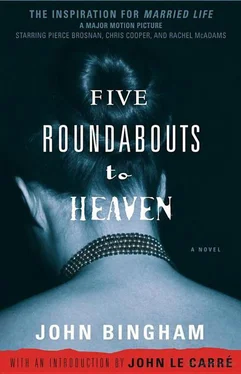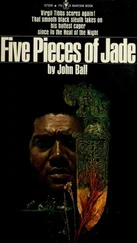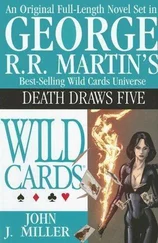John Bingham - Five Roundabouts to Heaven
Здесь есть возможность читать онлайн «John Bingham - Five Roundabouts to Heaven» весь текст электронной книги совершенно бесплатно (целиком полную версию без сокращений). В некоторых случаях можно слушать аудио, скачать через торрент в формате fb2 и присутствует краткое содержание. Жанр: Криминальный детектив, на английском языке. Описание произведения, (предисловие) а так же отзывы посетителей доступны на портале библиотеки ЛибКат.
- Название:Five Roundabouts to Heaven
- Автор:
- Жанр:
- Год:неизвестен
- ISBN:нет данных
- Рейтинг книги:4 / 5. Голосов: 1
-
Избранное:Добавить в избранное
- Отзывы:
-
Ваша оценка:
- 80
- 1
- 2
- 3
- 4
- 5
Five Roundabouts to Heaven: краткое содержание, описание и аннотация
Предлагаем к чтению аннотацию, описание, краткое содержание или предисловие (зависит от того, что написал сам автор книги «Five Roundabouts to Heaven»). Если вы не нашли необходимую информацию о книге — напишите в комментариях, мы постараемся отыскать её.
Five Roundabouts to Heaven — читать онлайн бесплатно полную книгу (весь текст) целиком
Ниже представлен текст книги, разбитый по страницам. Система сохранения места последней прочитанной страницы, позволяет с удобством читать онлайн бесплатно книгу «Five Roundabouts to Heaven», без необходимости каждый раз заново искать на чём Вы остановились. Поставьте закладку, и сможете в любой момент перейти на страницу, на которой закончили чтение.
Интервал:
Закладка:
“Too risky,” said Bartels softly. “Too bloody risky.”
Thank heavens he had tried to plan every detail in advance.
Thank God he had had enough imagination to picture every incident which could happen before it happened. Thus Bartels, feeling in his dressing-gown pocket for his lighter to light a cigarette, decided that he would have to give the whole idea up, not only for that night, but perhaps for always. The same problem would always arise.
He lit his cigarette. Human nature being what it is, a very slight feeling of relief came over him; a man’s philosophy of life and death may make him indifferent to humane killing, in special conditions, but to risk the long-drawn-out rigmarole of a trial and the scaffold is a different matter.
Circumstances beyond his control were preventing him from carrying out his plan. What the future held he could not tell; he had not had time to think. But for the moment he need do nothing; and because he need do nothing, he felt the tension relax within him. The machine had stopped, and with it the moving band of events.
He replaced the lighter in his pocket. A simple enough action, but important, for there was the solution: his pocket. It was as simple as that, he thought, and at once the burden of events closed in on him again and he saw that there was no further delay open to him.
He could conceal the bottle that had contained the poison in his trousers pocket. Next day he could walk out with it and dispose of it how he wished.
Whatever Dr Anderson thought, whatever the police surgeon thought, if he came to the flat, there could not possibly be enough evidence to justify the police in holding him and searching him.
Arrests in poison cases take some time. There is an autopsy to be performed, motive and opportunity to be proved, senior officers and law officers consulted. It all takes time.
Without an arrest there would be no body-search of the suspect. No officer would have the audacity to request him to turn out his pockets for inspection, within an hour or two of his wife’s death from a probable attack of coronary thrombosis, without most damning evidence.
Bartels saw the wheels begin to turn again, the machine start, and the moving band slide forward once. There was no escape. He would go forward because he had to do so.
He had committed himself, not in other people’s eyes, who might have been prepared to understand, but in the court of his own self-esteem.
He realized now that there was an important side issue to the act which he had planned. He had been a failure in life; he had lacked courage, self-confidence, and that self-assertiveness which is needful for success.
The act of murder which he planned, the proof that he, Philip Bartels, could if necessary beat the police and society, would bring him not only Lorna Dickson, but, in a twisted kind of way, balm to the self-esteem which had been damaged over the years.
If he drew back now, from fear or lack of tenacity, he was finished forever in his own eyes. He would have had his supreme test, dark and secret though it was, and he would have failed.
Uneasily, his hand on the door of the bathroom, Bartels for the first time began to question his motive. Hitherto, he had felt sure that they were based upon love for Lorna, pity for her in her loneliness, and an overwhelming desire to save Beatrice from being hurt and distressed.
Now he had glimpsed something else. Something which he had choked back into his subconscious; something mean and slimy; ignoble, based upon vanity and frustration. A desire to equate himself with others who had defeated their fellow men, had had their triumphs in the world of commerce, or art, or sport.
But they had won their victories openly. At the best, he would be the victor on a secret battlefield, a battle darkly fought, in which the only victim would be Beatrice, a woman who trusted him.
He hesitated to open the door, because he knew that once he passed through it he would be committed to act. There would be no turning back. The depression which had descended upon him was the greater because it followed so swiftly upon the heels of his earlier relief.
He heard the voice of Beatrice calling from the bedroom, asking if he had nearly finished with the bathroom. He glanced at his watch. He had been in there over three-quarters of an hour.
Bartels wrenched the door open.
He went along to the bedroom. Beatrice was up, sitting in front of the dressing table in her dressing gown, filing her nails. She looked round as he came in.
“You’ve been a long time, Barty.”
“Have I? Sorry.”
“What on earth have you been doing?”
“Thinking,” said Bartels.
“Well, I wish you would think somewhere else. What were the great thoughts?”
“Nothing much,” said Bartels. “Just about this and that. By the way, I shan’t be in this evening. I’ve got some ghastly dinner in Colchester with some local wine society. What’ll you do?”
Beatrice thought for a moment. “I’ll probably go and see that film at the local. I’ve been wanting to see it for some time.”
“Don’t wait up for me. You know what these things are.”
When Beatrice had gone into the bathroom, he finished dressing, and went to the wardrobe, and found the bottle of altrapeine. He had bound some adhesive tape round the neck and stopper, lest a few grains should leak out, and, in the event of things going wrong, be found on analysis of his pocket dust by the police laboratory.
You couldn’t be too careful.
Then, having nothing further to do at the moment, he went to the kitchen and started cooking the breakfast. There were two eggs in the refrigerator. He fried them, and added two rashers of bacon, and two tomatoes. He also fried some bread. When he had finished, he put the food on a dish, and placed it in the oven to keep warm, and made some toast and coffee.
He had finished the toast when Beatrice came into the kitchen, and he helped her to lay the table.
Beatrice enjoyed her meal. She said so.
“Though what we’re going to eat for the rest of the week for breakfast, Barty, I don’t know.”
Bartels thought: Brutus enjoyed his run along the hedgerows; she’s enjoyed her breakfast. Aloud, he said:
“Eat, drink and be merry, for tomorrow we may die. Or today, if it comes to that. You never know.”
Beatrice said: “Don’t be so gloomy, Barty.”
“Well, you never know, do you?”
He hated himself for his grisly humour, and was at a loss to understand why he had made the remark.
After breakfast he went to his typewriter to type a letter to his bank manager. When he had finished, he sat listening.
Beatrice was in the kitchen, washing up. He stamped his letter, put it in his pocket, and went into the bedroom and took the bottle of digestive powder, and went along to the kitchen. He put his head round the door.
“As a matter of fact, my own stomach feels a bit upset this morning. I’m going to steal a dose of your powder, if you don’t mind. I’ve got that dam’ dinner tonight.”
“Use one of these cups,” said Beatrice. “It makes the glass so hard to polish.”
“It’s all right. I’ll use the tooth-mug in the bathroom.” He went into the kitchen, picked up a teaspoon, and went into the bathroom, and closed the door. He locked the door, but before he did so, he opened the window; such was his fear of confined spaces.
He felt curiously aloof and detached, as though he were watching from close at hand the actions of somebody else called Philip Bartels.
It did not seem possible that it was really he who extracted two teaspoonsful of Beatrice’s medicine, and threw it into the basin, and carefully rinsed away the scattered grains from the side. That represented the amount he was supposed to have taken.
Читать дальшеИнтервал:
Закладка:
Похожие книги на «Five Roundabouts to Heaven»
Представляем Вашему вниманию похожие книги на «Five Roundabouts to Heaven» списком для выбора. Мы отобрали схожую по названию и смыслу литературу в надежде предоставить читателям больше вариантов отыскать новые, интересные, ещё непрочитанные произведения.
Обсуждение, отзывы о книге «Five Roundabouts to Heaven» и просто собственные мнения читателей. Оставьте ваши комментарии, напишите, что Вы думаете о произведении, его смысле или главных героях. Укажите что конкретно понравилось, а что нет, и почему Вы так считаете.












